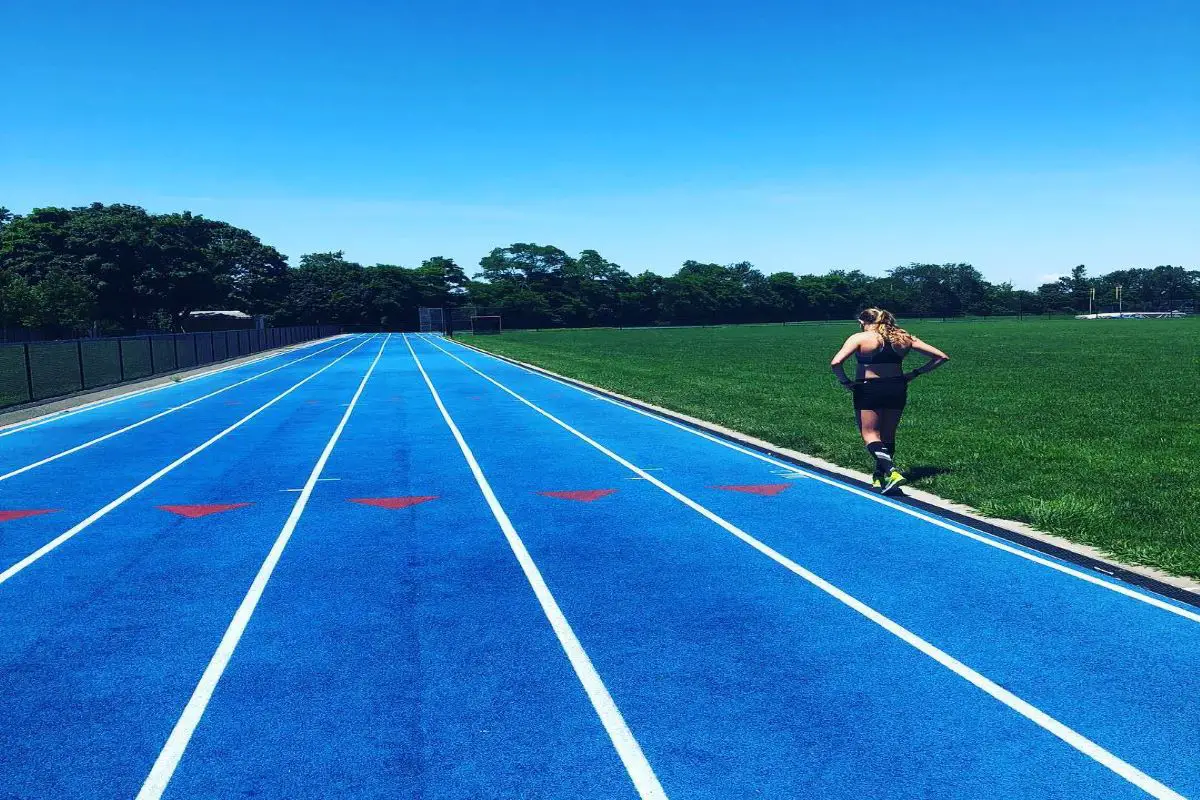From a Mayan ball game to the Greek Olympics to Roman gladiatorial events to the Super Bowl, World Series and Stanley Cup, people never fail to weave the art of athletic competitions into their lives. Whether the victor is hailed as a military leader, crowned with Apollonian laurel leaves, bestowed political honors or praised as a hometown hero, our reverence for athletes approaches something akin to deification.
We love them to the point that we fail to see their human flaws and weaknesses — leaving them vulnerable to the grueling demands of coaches and fans alike.
As the youngest American track and field athlete to make a World Championships team, Mary Cain dominated her competitors. She began training under the country’s most elite coaches and alongside its most accomplished athletes after entering Nike’s Oregon Project in 2013. Successful and adored, Cain lived every runner’s dream. She also broke five bones, lost her period for three years and spiraled into depression and anxiety.
Nike Coach Alberto Salazar, now suspended on doping allegations, fostered a training environment that promoted psychological abuse centered around weight loss. In her New York Times article, Cain recalls being weighed in front of her teammates, berated if the scale tipped in the wrong direction and focused on weight to the extent that it mattered even more than her race time.
https://www.instagram.com/p/BvZvB-FhuTq/?utm_source=ig_web_copy_link
One component that contributes to situations like Cain experienced is the expectation of young female athletes to meet athletic standards based on the development and physique of male athletes. Whether society blames a patriarchal ignorance of women’s bodies or an overly-feminist zest for exactly equal treatment in all situations is irrelevant — the result is always a devastating, debilitating toll on a female athlete’s mind and body.
But an even more pertinent factor in a system that steamrolls young athletes is one that transcends issues of gender, patriarchy and feminism: idolization. “America loves a good child prodigy story,” former Oregon Project runner Lauren Fleshman told the New York Times. “And business is ready and waiting to exploit that story.”
Professional athletes are treasure troves for media outlets and clothing lines alike. Televised competitions draw billions of viewers, not to mention the profit jerseys, t-shirts, hats and other fashion accessories garnish for retailers. To profit-oriented businesses, athletes are not simply people who are really, really good at a sport. They are effectively cogs in a money-making machine.
After Cain’s story hit the press, many of her fellow athletes and former Oregon coaches spoke up in apology for staying silent even when her suffering was clear. Such a pattern is now practically like a prayer in the sporting-world. It’s something we hear over (Jerry Sandusky), and over (Richard Strauss) and over (Larry Nassar) again, but scarcely listen to the words or decipher their meanings.
We attribute witness silence in cases of abuse and mistreatment of athletes to naivety, cowardice or even ambivalence. We promise to do better next time. Athletic clothing lines revoke funding for programs with questionable practices, Facebook groups and news outlets hotly debate the issue, Americans promise to treat their athletes better and then there is silence. Back to business as usual. And a few months later the cycle starts again; the prayer repeated.
That’s because there is another often undiscussed cause of silence — fear of public disillusionment. In the above cases, both coaches and athletes occupy a sacred space on the American altar, and definitive investigations, or even rumors of allegations, would pollute their sacredness. Athletes are imagined as perfect machines of strength and grace, and coaches are their protectors, their teachers. Surely, we assume, such a relationship cannot be violated.
But the truth is that, just like Cain’s fellow Oregon Project team and staff, society sees the damage, but refuses its acknowledgement. Why? Inconvenience. It’s inconvenient for companies that lose money, inconvenient for children who lose role models, inconvenient for universities that lose reputation and inconvenient for adult fans who lose their perfect all-star fantasy.
Nor are athletes, although the primary casualty of idolization, the only one’s affected. Societal standards of morality and decency are degraded when videos of domestic abuse, allegations of sexual assault and even convictions of sexual assault are washed away by successful sports careers and athletic potential. On a more personal level, individual fans can potentially suffer adverse psychological effects by over emphasizing the importance of athletes in their lives.
“If you notice someone else being successful, you’ll start analyzing the things they’re doing and you’ll start to adapt that to your behavioral patterns,” Hillary Cauthen, a PsyD sports psychologist, told Healthline. “Social comparison is really hard especially when you’re in a toxic culture and you see coaches who validate athletes who are suffering mentally, physically, [and] emotionally. They are being rewarded for unhealthy behaviors we don’t want to happen.”
Athletes may look at other athletes and seek to emulate their behavior, even if it’s harmful. But fans or young aspiring athletes are looking to the same role models; role models who themselves need saving, who themselves need better role models of their own.
ESPN even faulted contemporary sports culture, both the idolization of professional athletes and rigorous youth sports, with turning young athletes into “ticking time bombs.” Young adults, practically kids, are entering professional sports on the verge of injury and exhaustion after spending their whole lives striving to be like their role models. They are broken before they even have a chance to start.
Part of this “heroization” of athletes stems from media capitalism, but we as fans must hold ourselves responsible as well. This phenomenon of idolization hurts individuals in our society — whether they be athletes or spectators. If we claim to possess deep respect and awe for these athletes, then we must show it. We must prove it. We must be more careful that feelings of pride and joy towards athletes and their performance does not become mindless, dehumanizing worship.
















